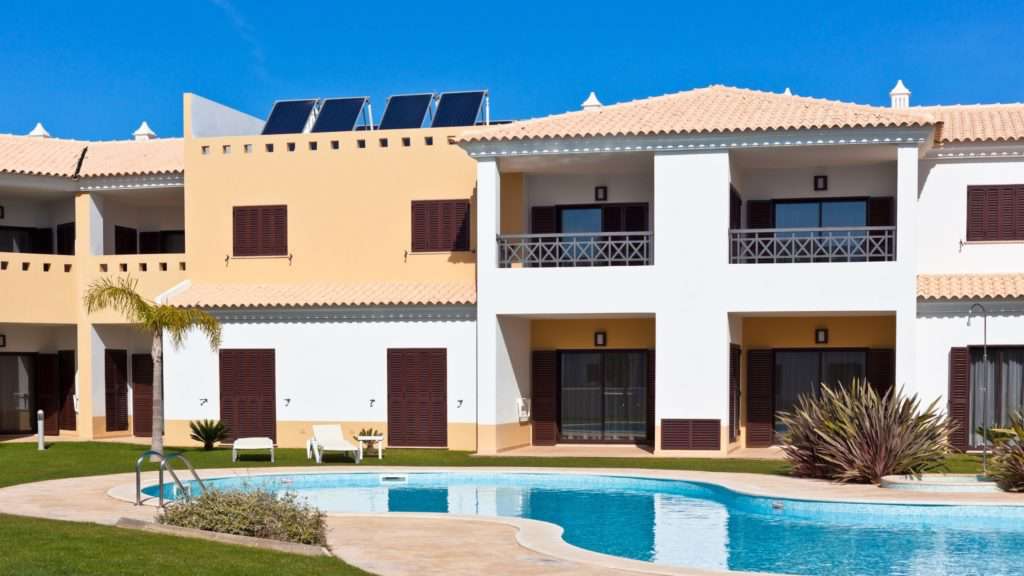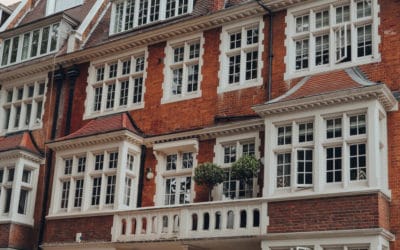One of the most important items, to all renters, is finding a quiet apartment. Finding a quiet apartment is easy if you first identify the internal and external factors that can create noise and then the design features in an apartment which can control it. No apartment is ever completely noise-free but checking off these items will greatly improve your chances of finding a quiet apartment.
Quick Summary Video (if you prefer) and then keep reading…
STEP 1: Look for EXTERNAL noise factors
External noise factors are exactly what they sound like. What obvious sources (external to the building) could be creating noise. You will need to visually look at all sides of the building to check for the possibility of any physical noise, including:
- Outside construction
- Road work
- Train tracks
- Nearby airport or flight path
- Hospital or fire station (i.e. sirens)
- Bars, pubs, and nightclubs nearby
- Busy streets with plenty of traffic
- School playgrounds
- Streets shut down for large event parades
- Apartment windows face the building playground or pool
STEP 2: Ask about INTERNAL building noise factors
Apart from external noises, you need to consider internal noise factors that come from within the building. Most of these internal noise factors can be solved by a well-built apartment complex. Well-built apartments with sound control in mind can solve most of these issues. Ask the following questions when you’re touring an apartment:

- How are the ceilings and floors built? All things being equal, concrete floors are better for sound control (assuming you have people above you) when compared to wood truss systems. Concrete is more expensive to build with so fewer apartments tend to have this.
- How are internal walls between units built? Once again, concrete walls between units (also known as party walls) are better for sound control than framed walls with drywall. Framed walls with simply drywall and little sound insulation between them are where the adage of ‘my walls are so thin‘ can come from. That being said, framed walls constructed with dry wall can be built for sound control if special techniques and materials are used. These special techniques and materials are meant to reduce the sound transmission (STC rating) and add more costs for the builder. The quietest apartment buildings spend a lot of money to create an optimal sound rating (STC rating) between units.
- Are the windows double or single-paned? Windows are often the ‘weakest link’ for sound control as sound can travel through glass easily. Double-paned (two pieces of glass) naturally have better sound insulation than single-paned (one piece of glass).
- What is the quality of the external doors? Are the external doors solid core doors? Do they block out noise or allow it in? Does the door seal tight to the frame and threshold, or is there a small gap allowing noise to travel from outside into your apartment?
- What type of flooring is in the house? All things being equal, carpeted floors (assuming there is someone above you) tend to have better sound insulation since they absorb noise compared to hard surfaces like tile (the nosiest) and wood or composite floors.
- How is the floor plan designed? Are the bedrooms adjoining to your neighbor’s living room? This could be a nuisance especially if the neighbors choose to watch TV in the middle of the night. A better design plan would be bedrooms set against bedrooms in different apartment units.
- Do the neighbors have pets inside the units? Are pets allowed in the building? If so, what size dogs? If there are not pets in the building, that can help with a quieter apartment.
- Does management have a noise policy? Are there rules on quiet hours? How is that enforced? If management has an active noise policy and restricts hours where loud noises can be made, this can have a great impact on finding a quiet apartment.
STEP 3: Ask about Physical Location of the unit

The physical location of your exact apartment unit will also have an impact on the level of noise inside. Consider these:
- Is the apartment near a trash chute?
- Are there amenities or outdoor courtyards near your windows or doors?
- Is the HVAC system’s outdoor condenser unit right near your bedroom window?
- Which floor are you on? If you are on the top floor, there is no need to worry about noise from the unit above, but this could be a problem on lower floors.
- Is there insulation between different rooms in the apartment to limit sound transmission?
- Are you right next to one of the external factors mentioned above (i.e. busy street, fire station, nightclub)
Finding a quiet apartment takes some consideration, but once you understand how to mitigate the risks, you’re much more likely to find a quiet apartment that suits your needs. Remember, to observe the external factors, understand the internal factors (i.e. how the apartment was built), and understand the exact physical location of where your apartment will be located.
Last Updated: May 6, 2021






